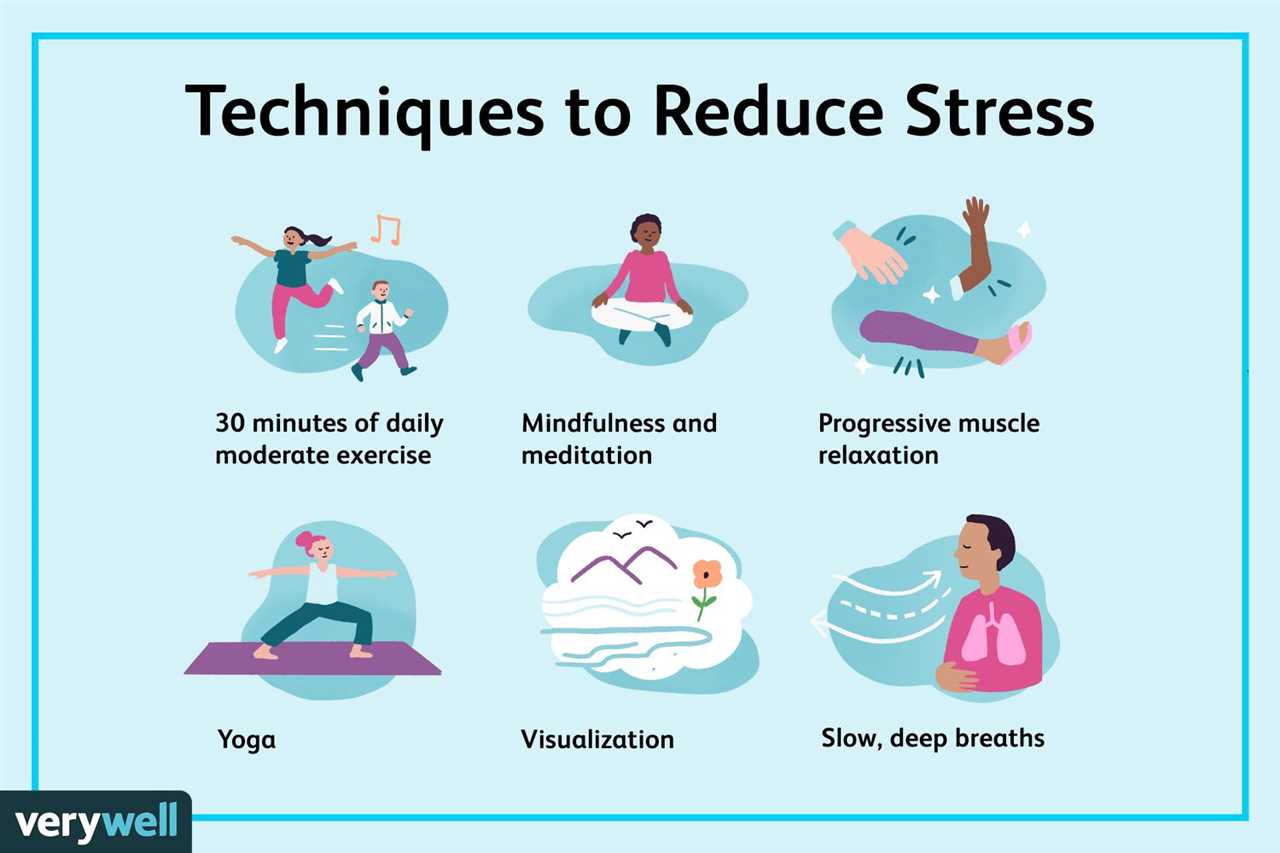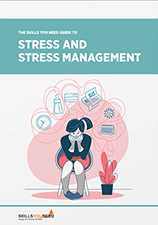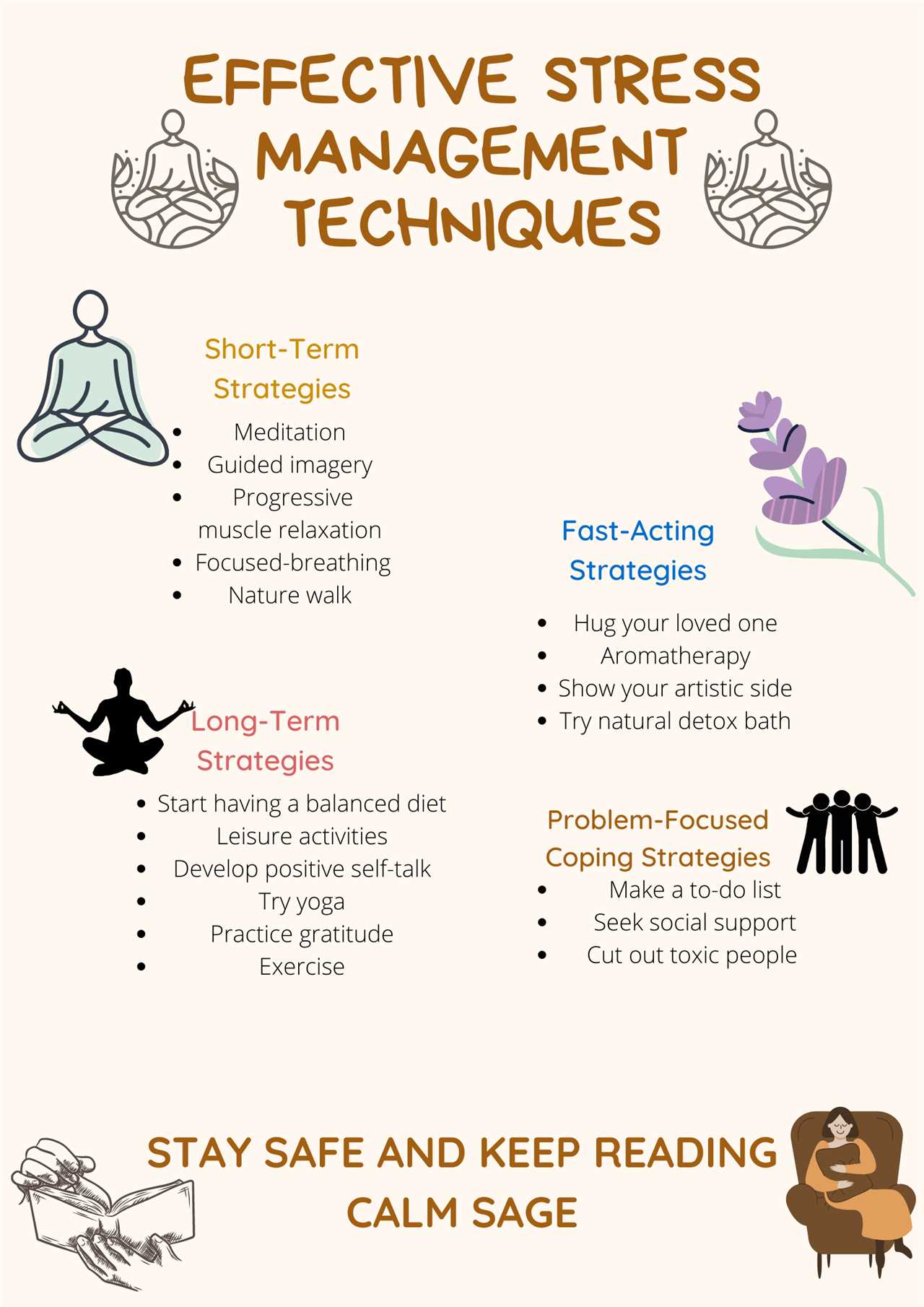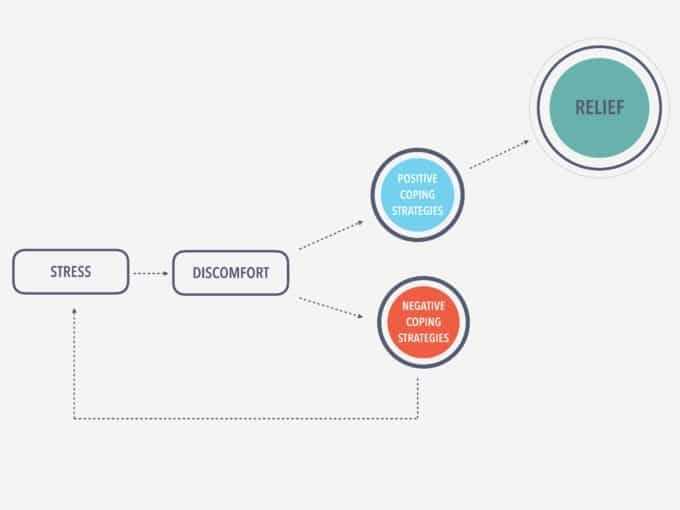
Stress is an inevitable part of life, and learning how to effectively manage and cope with it is crucial for our overall well-being. In today’s fast-paced and demanding world, it’s more important than ever to be prepared for the challenges that stress can bring. But how can we prepare ourselves? How can we equip ourselves with the necessary tools and strategies to navigate through stressful situations?
One of the key ways to prepare for stress is by developing a strong support system. Surrounding yourself with people who understand and support you can make a world of difference when it comes to managing stress. Whether it’s friends, family, or a therapist, having someone to lean on and talk to during difficult times can provide invaluable emotional support.
Another important aspect of preparation is learning how to be proactive rather than reactive. Instead of waiting for stress to hit you like a ton of bricks, take a proactive approach by identifying potential stressors and developing strategies to mitigate their impact. This could involve practicing relaxation techniques, such as deep breathing or meditation, or engaging in activities that bring you joy and help you unwind.
Lastly, it’s crucial to prioritize self-care and make it a non-negotiable part of your routine. Taking care of your physical and mental well-being is essential for building resilience and preparing yourself for stress. Make sure to get enough sleep, eat nutritious meals, exercise regularly, and engage in activities that bring you happiness and fulfillment. Remember, self-care is not selfish; it’s a necessary investment in your overall well-being.
Understanding Stress and Its Impact

In order to be prepared for stress, it is important to have a clear understanding of what it is and how it can impact your life.
Stress is a natural response to challenging or overwhelming situations. It can be caused by various factors such as work pressure, personal relationships, financial difficulties, or health issues. When faced with stress, our bodies release hormones that prepare us to respond to the perceived threat. This is commonly known as the fight-or-flight response.
While stress is a normal part of life, excessive or chronic stress can have negative effects on both our physical and mental well-being. It can lead to a range of symptoms including fatigue, irritability, difficulty concentrating, sleep problems, and physical health issues like headaches or stomachaches.
Understanding the impact of stress is crucial because it allows us to recognize the signs and take appropriate measures to manage it effectively. By being aware of how stress affects us, we can develop strategies and techniques to cope with it in a healthy way.
Learning to identify the sources of stress in our lives is an important step in managing it. By pinpointing the specific triggers, we can take proactive steps to reduce or eliminate them. This may involve setting boundaries, learning to say no, or seeking support from friends, family, or professionals.
Additionally, practicing self-care and relaxation techniques can help alleviate stress and promote overall well-being. This can include activities such as exercise, meditation, deep breathing exercises, or engaging in hobbies and activities that bring joy and relaxation.
In conclusion, understanding stress and its impact is essential for being prepared to manage it effectively. By recognizing the signs and sources of stress, and implementing strategies to cope with it, we can minimize its negative effects and lead a more balanced and fulfilling life.
The Definition and Types of Stress

Stress can be defined as a physiological and psychological response to a perceived threat or challenge. It is the body’s way of preparing itself to deal with difficult or demanding situations. Stress can manifest in various ways and can have different effects on individuals.
There are two main types of stress: acute stress and chronic stress. Acute stress is short-term and usually occurs in response to immediate situations, such as a deadline or a challenging task. It is a normal and necessary part of life, as it can motivate and help individuals perform at their best. However, when acute stress becomes chronic, it can have detrimental effects on physical and mental health.
Chronic stress, on the other hand, is long-term and persistent. It can result from ongoing problems or situations that seem never-ending. Chronic stress can be caused by factors such as work pressure, financial difficulties, relationship problems, or health issues. Unlike acute stress, chronic stress can have negative consequences on overall well-being if not properly managed.
It is important to be prepared to deal with stress in order to maintain a healthy and balanced life. Understanding the definition and types of stress can help individuals recognize and address their own stressors. By identifying the sources of stress and implementing effective strategies and techniques, individuals can better manage and reduce the impact of stress on their overall well-being.
Recognizing the Physical and Emotional Signs of Stress

Being prepared for stress means understanding the signs that indicate you are experiencing it. Stress can manifest itself in both physical and emotional ways, and recognizing these signs is crucial in order to effectively manage and reduce its impact on your well-being.
Physically, stress can present itself through symptoms such as headaches, muscle tension, and fatigue. You may also notice changes in your appetite, sleep patterns, or digestive system. These physical signs serve as important cues that your body is under stress and needs attention.
Emotionally, stress can affect your mood and overall mental well-being. You may experience increased irritability, anxiety, or difficulty concentrating. Stress can also lead to feelings of sadness, low self-esteem, or a sense of being overwhelmed. These emotional signs should not be ignored, as they can have a significant impact on your daily life and relationships.
It is important to be mindful of these physical and emotional signs and to take them seriously. Ignoring or dismissing them can lead to further stress and potential long-term health issues. By recognizing the signs of stress, you can take proactive steps to manage it and prioritize self-care.
Here are a few strategies to help you recognize and address stress:
1. Self-reflection: Take the time to reflect on your physical and emotional state. Notice any changes or patterns that may indicate stress. Keeping a journal can be helpful in tracking these signs over time.
2. Seek support: Reach out to trusted friends, family, or professionals who can provide guidance and support. Talking about your experiences can help you gain perspective and identify strategies for managing stress.
3. Practice self-care: Engage in activities that promote relaxation and well-being. This can include exercise, meditation, hobbies, or spending time in nature. Taking care of yourself physically and emotionally is essential for managing stress.
4. Set boundaries: Learn to say no and establish boundaries that prioritize your well-being. Recognize when you are taking on too much and make adjustments to reduce stress levels.
5. Seek professional help: If you find that stress is significantly impacting your daily life and well-being, consider seeking professional help. A therapist or counselor can provide guidance and support in developing effective strategies for managing stress.
By recognizing the physical and emotional signs of stress, you can take proactive steps to address it and prioritize your well-being. Being prepared and proactive in managing stress is essential for maintaining a healthy and balanced life.
Developing Healthy Coping Mechanisms

Being prepared to handle stress is crucial for maintaining overall well-being. Developing healthy coping mechanisms can help individuals effectively manage and reduce stress levels. Here are some strategies and techniques to consider:
1. Identify your stressors: Take the time to understand what triggers your stress. By recognizing these stressors, you can proactively work on managing them.
2. Practice self-care: Prioritize self-care activities such as exercise, healthy eating, and getting enough sleep. Taking care of your physical health can greatly impact your ability to handle stress.
3. Build a support system: Surround yourself with a network of supportive friends, family, or professionals who can offer guidance and lend a listening ear during stressful times.
4. Engage in relaxation techniques: Experiment with different relaxation techniques, such as deep breathing exercises, meditation, or yoga. These practices can help calm the mind and reduce stress levels.
5. Develop healthy coping mechanisms: Instead of turning to unhealthy coping mechanisms such as excessive alcohol consumption or overeating, find healthier alternatives. This can include engaging in hobbies, journaling, or seeking professional help.
6. Set realistic goals: Break down overwhelming tasks into smaller, more manageable goals. This can help reduce stress and increase feelings of accomplishment.
7. Practice time management: Prioritize tasks and create a schedule to effectively manage your time. This can help prevent feelings of being overwhelmed and reduce stress levels.
Remember, developing healthy coping mechanisms takes time and practice. By implementing these strategies, you can be better prepared to handle stress and maintain a balanced and fulfilling life.
Practicing Relaxation Techniques

Stress is a common and unavoidable part of life. However, it is important to find ways to effectively manage and reduce stress in order to maintain overall well-being. One effective way to do this is by practicing relaxation techniques.
Relaxation techniques are exercises or activities that help to calm the mind and body, promoting a sense of peace and tranquility. They can be practiced in various ways and can be tailored to suit individual preferences and needs.
To effectively practice relaxation techniques, it is important to first identify which techniques work best for you. This can be done by experimenting with different techniques and paying attention to how your body and mind respond to each one. Some common relaxation techniques include deep breathing, progressive muscle relaxation, guided imagery, and mindfulness meditation.
Deep breathing involves taking slow, deep breaths, focusing on the sensation of the breath entering and leaving the body. This technique can help to slow down the heart rate and relax the muscles, promoting a state of calmness.
Progressive muscle relaxation involves tensing and then releasing different muscle groups in the body, one at a time. This technique can help to release tension and promote relaxation throughout the body.
Guided imagery involves using the power of imagination to create a calming and peaceful mental image. This technique can help to distract the mind from stressful thoughts and promote a sense of calm and well-being.
Mindfulness meditation involves focusing on the present moment and accepting it without judgment. This technique can help to cultivate a sense of awareness and reduce stress by allowing the mind to let go of worries and concerns.
Regardless of the relaxation technique you choose, it is important to set aside dedicated time each day to practice. This can be as little as 10 minutes or as long as an hour, depending on your schedule and preferences.
By incorporating relaxation techniques into your daily routine, you can effectively manage and reduce stress, promoting overall well-being and a greater sense of calm and peace.
Engaging in Regular Exercise and Physical Activity

When it comes to managing stress, one effective strategy is to engage in regular exercise and physical activity. Exercise has been proven to have numerous benefits for both the body and mind, including reducing stress levels.
Regular exercise helps to release endorphins, which are natural mood boosters. These endorphins can help to reduce feelings of stress and anxiety, promoting a sense of well-being and relaxation.
Physical activity also helps to improve overall physical health, which can in turn help to reduce stress. When we are physically healthy, we are better equipped to handle the challenges and demands that stress can bring.
In addition to the physical benefits, exercise can also serve as a distraction from stress. Engaging in physical activity allows us to focus our attention on the present moment, taking our minds off of our worries and concerns.
There are many different types of exercise and physical activities that can be beneficial for managing stress. Some examples include:
- Walking or jogging
- Dancing
- Yoga or Pilates
- Swimming
- Cycling
- Weightlifting or strength training
It’s important to find activities that you enjoy and that fit into your lifestyle. This will help to ensure that you are more likely to stick with them and make them a regular part of your routine.
Remember, when it comes to managing stress, being prepared is key. Engaging in regular exercise and physical activity is a proactive way to reduce stress and promote overall well-being.
Building a Supportive Network

When it comes to managing stress, it is important to have a strong support system in place. Having people who understand and support you can make a world of difference in how well you are able to handle stressful situations. Here are some strategies to build a supportive network:
- Reach out to friends and family: Share your feelings and experiences with loved ones who can provide emotional support and advice.
- Join a support group: Connect with others who are going through similar experiences. Sharing your challenges and learning from others can be incredibly helpful.
- Seek professional help: Consider seeing a therapist or counselor who can provide guidance and tools to manage stress effectively.
- Participate in community activities: Engage in activities that interest you and allow you to meet new people. Building connections within your community can provide a sense of belonging and support.
- Practice active listening: Be a good listener to others and offer support when needed. Building strong relationships is a two-way street.
- Utilize online resources: Take advantage of online forums, blogs, and social media groups focused on stress management. These platforms can provide a virtual support network.
Remember, being prepared for stress includes having a network of people who can offer support and understanding. Building a supportive network takes time and effort, but the benefits are well worth it.

I am Patrina de Silva, a psychologist and mental health blogger in Sri Lanka. After obtaining psychology degrees from the University of Colombo and Monash University, I returned home to work as a counselor while also starting the popular blog “Pressy but Happy” to provide advice on psychological issues. Over the past decade, my empathetic articles have made my blog a leading mental health resource in the country. In addition to writing, I maintain a private therapy practice, frequently volunteer counseling time, and conduct seminars, driven by my passion for destigmatizing mental illness and educating the public on the mind-body connection. I strive to be an influential voice in my field through my compassionate approach.
